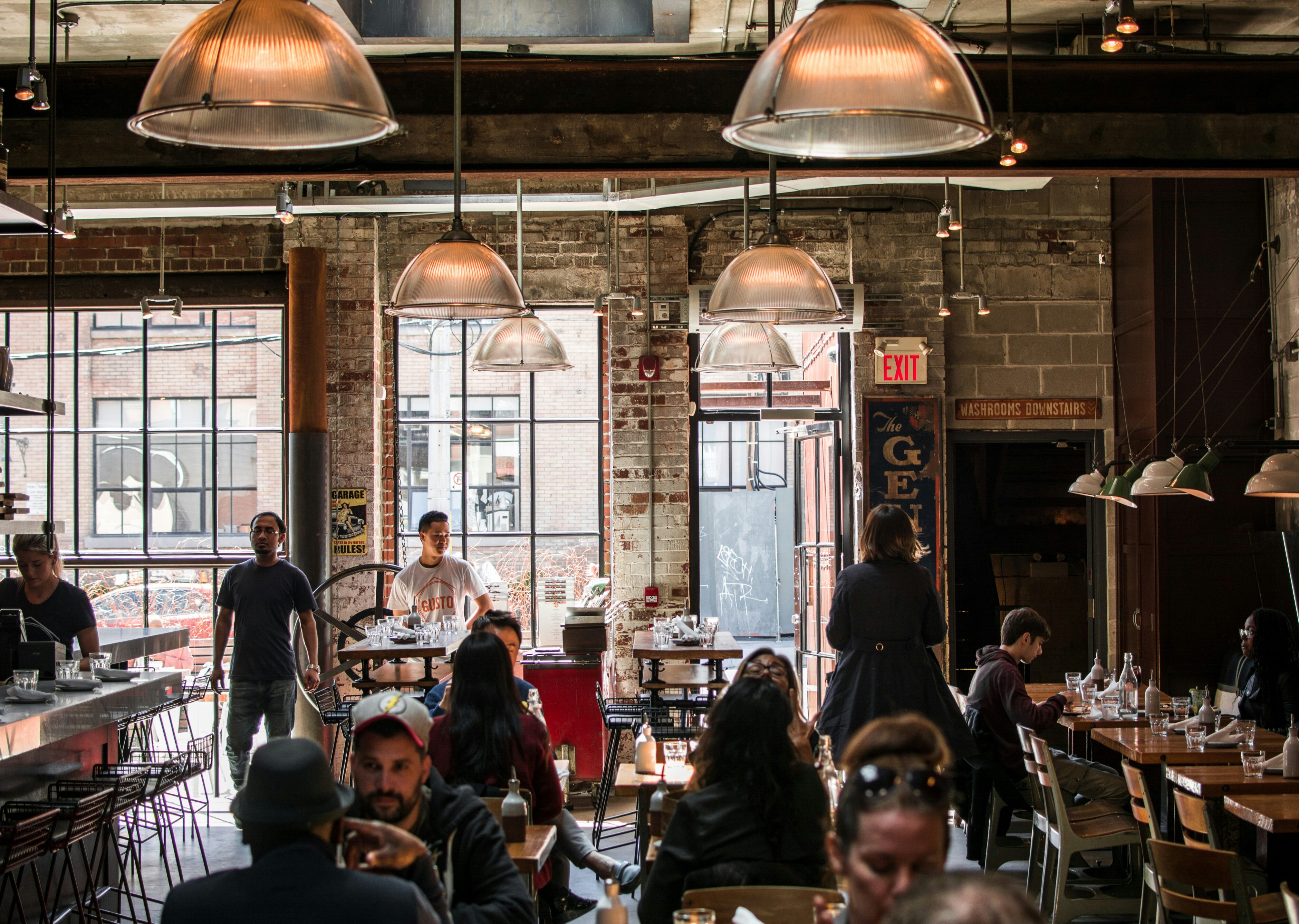Black farm in Downsview fights food insecurity by teaching locals to grow food
THE GREEN LINE
ORIGINAL STORY
BLACK FARM IN DOWNSVIEW FIGHTS FOOD INSECURITY BY TEACHING LOCALS TO GROW FOOD
The Toronto Black Farmers and Food Growers Collective is empowering farmers and neighbourhood residents by teaching them how to farm.
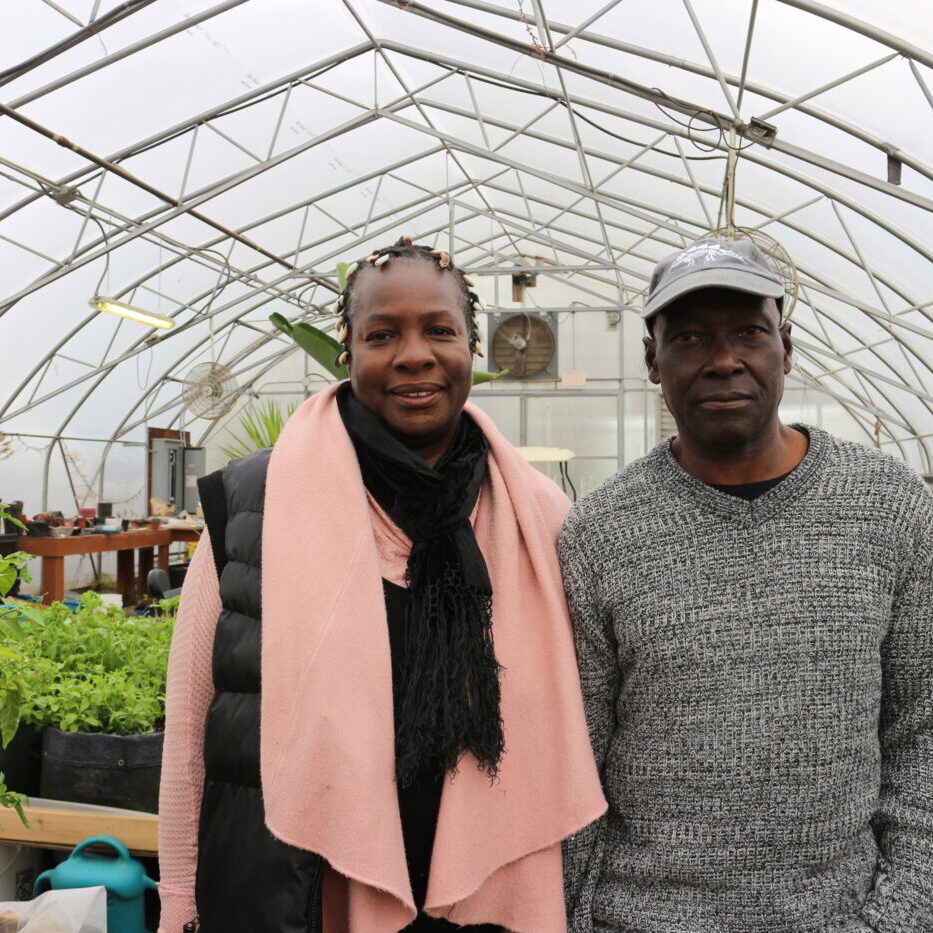
CO-FOUNDERS JACQUELINE DWYER AND NOEL LIVINGSTON STAND INSIDE THE TORONTO BLACK FARMERS COLLECTIVE GREENHOUSE.

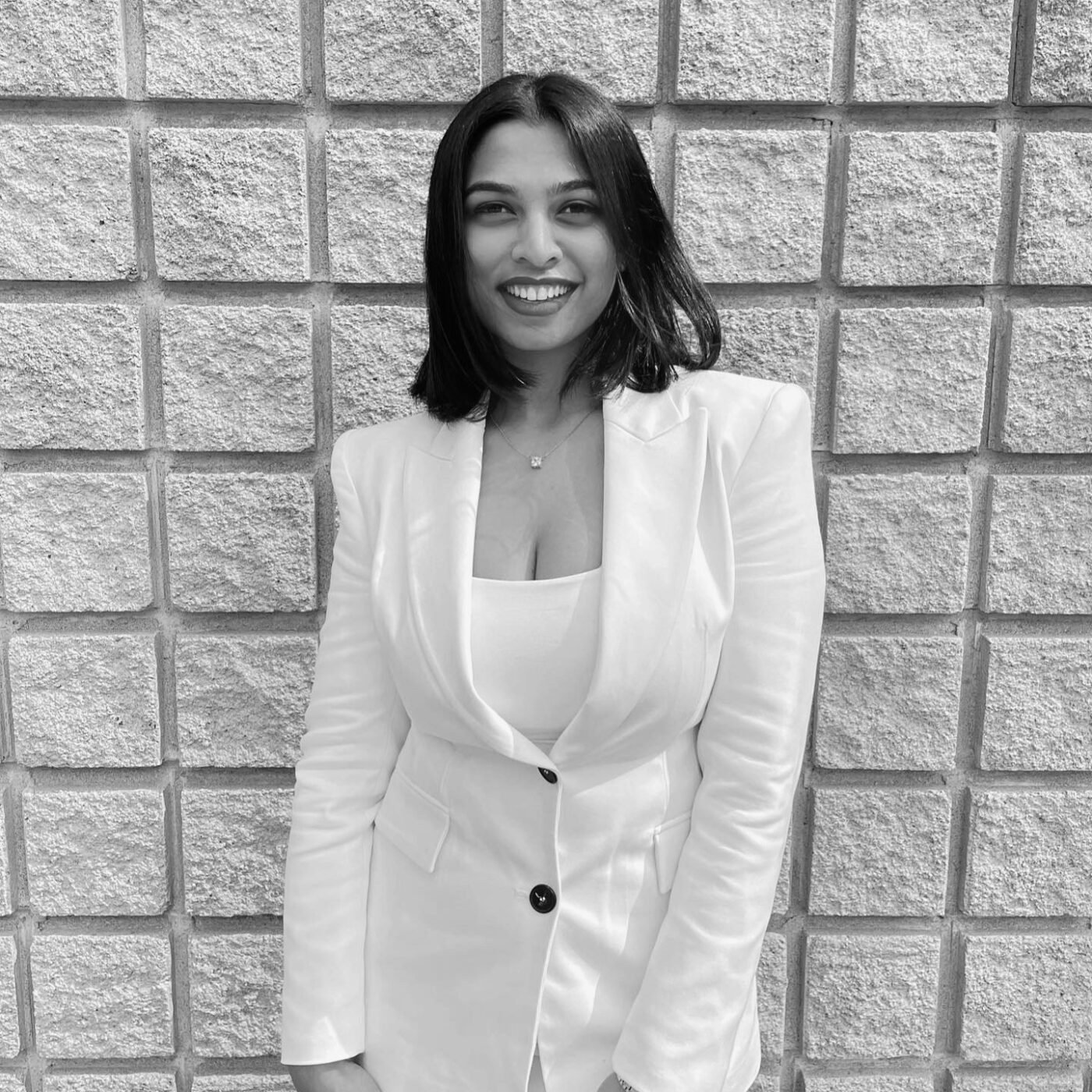
AMANDA SERAPHINA JAMES RAJAKUMAR
Indian immigrant with a post-grad in journalism from Centennial College. Now living in Grange Park, meeting new people, and hearing different stories. Has four names, so it’s a pick-your-player situation.
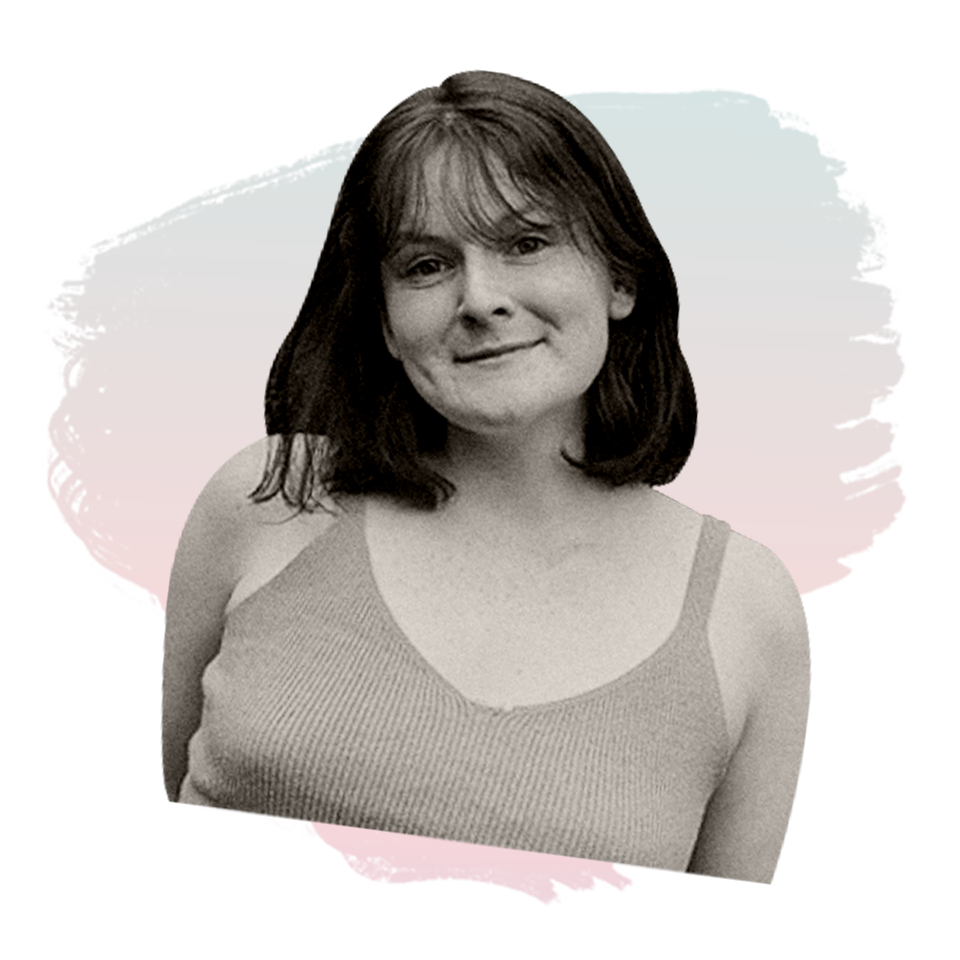
JULIA LAWRENCE
Aspiring film photographer who studies journalism, communication and design at Toronto Metropolitan University. Visits beaches at 6 a.m. to clear her head.
December 8, 2023
In the north end of Toronto, the neighbourhood of Downsview is best known for its urban park.
Nestled in this expansive green space is the Toronto Black Farmers and Food Growers Collective, which is fighting for food justice by teaching its members how to farm.
For the past decade, co-founder Jacqueline Dwyer and other collective members have fed local residents by empowering racialized farmers.
"It's a platform created to empower black farmers, black growers, black gardeners, black food entrepreneurs in a space [as well as] other racialized people who want to join us, because not everybody is down with our cause to actually have a space that references culture in [a] food space by us and for us," Dwyer said.
Sarah Ali is a member of The Collective Group, a resident-led organization representing over 30 neighbourhoods in Toronto. Ali says the Toronto Black Farmers Collective has helped her group in many ways, from providing healthy organic produce to hosting youth farming programs.
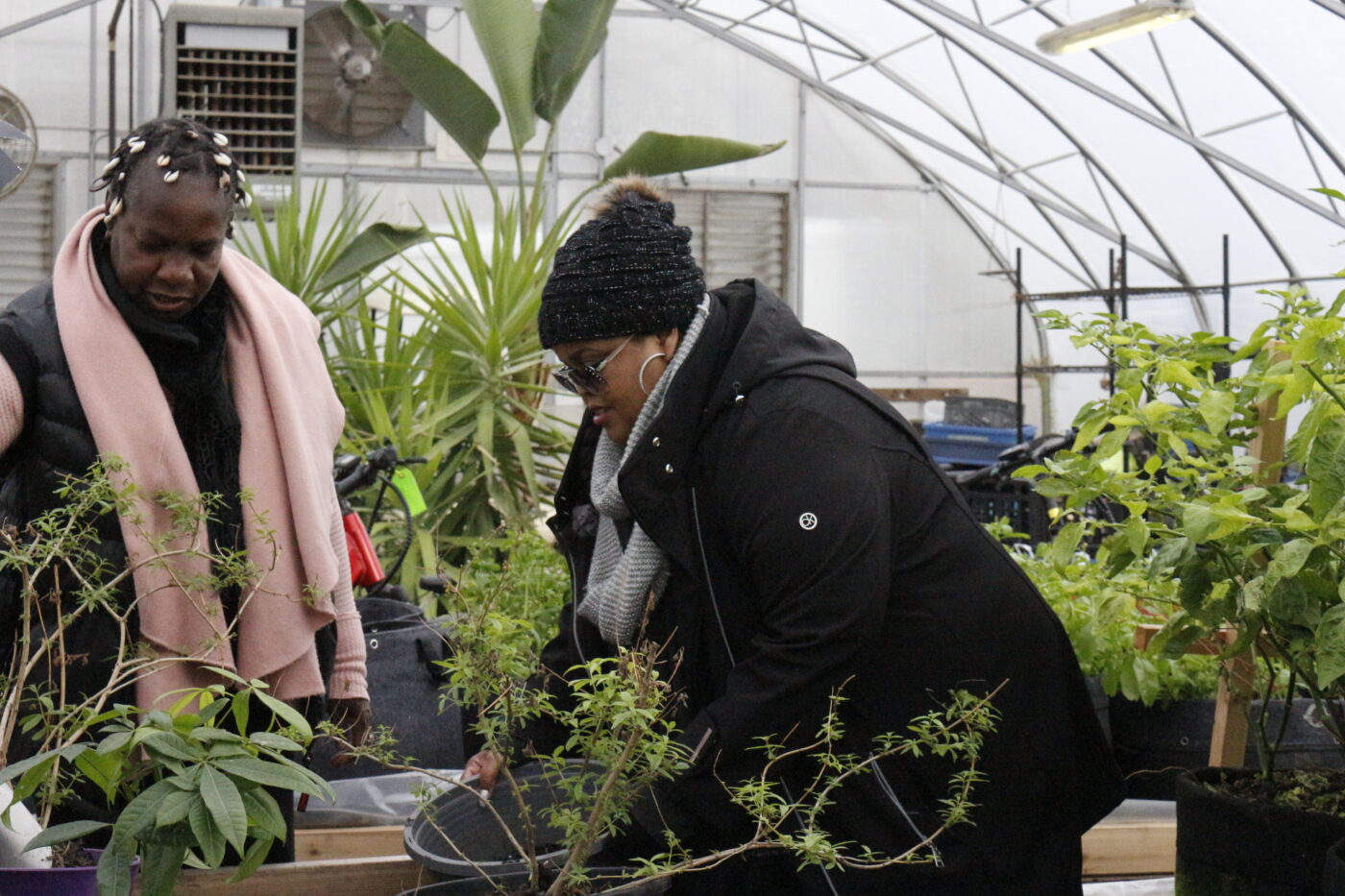
THE TORONTO BLACK FARMERS AND FOOD GROWERS COLLECTIVE CO-FOUNDER JACQUELINE DWYER (PICTURED LEFT) GARDENS WITH SARAH ALI (PICTURED RIGHT), A MEMBER OF THE COLLECTIVE GROUP.

“I had to basically unlearn everything I've learned in the system...And that was [thanks to] Toronto Black Farmers; they taught me that there was more to life," Ali explained. "It's basically you're programmed believing that this is what it is. But we as a humans — we're supposed to be connected with the earth, we're supposed to be connected with other people like ourselves, like-minded."
"And it took me the last nine years to cleanse myself from that. And I could say as today, I’m here helping out the next generation who are coming through.”
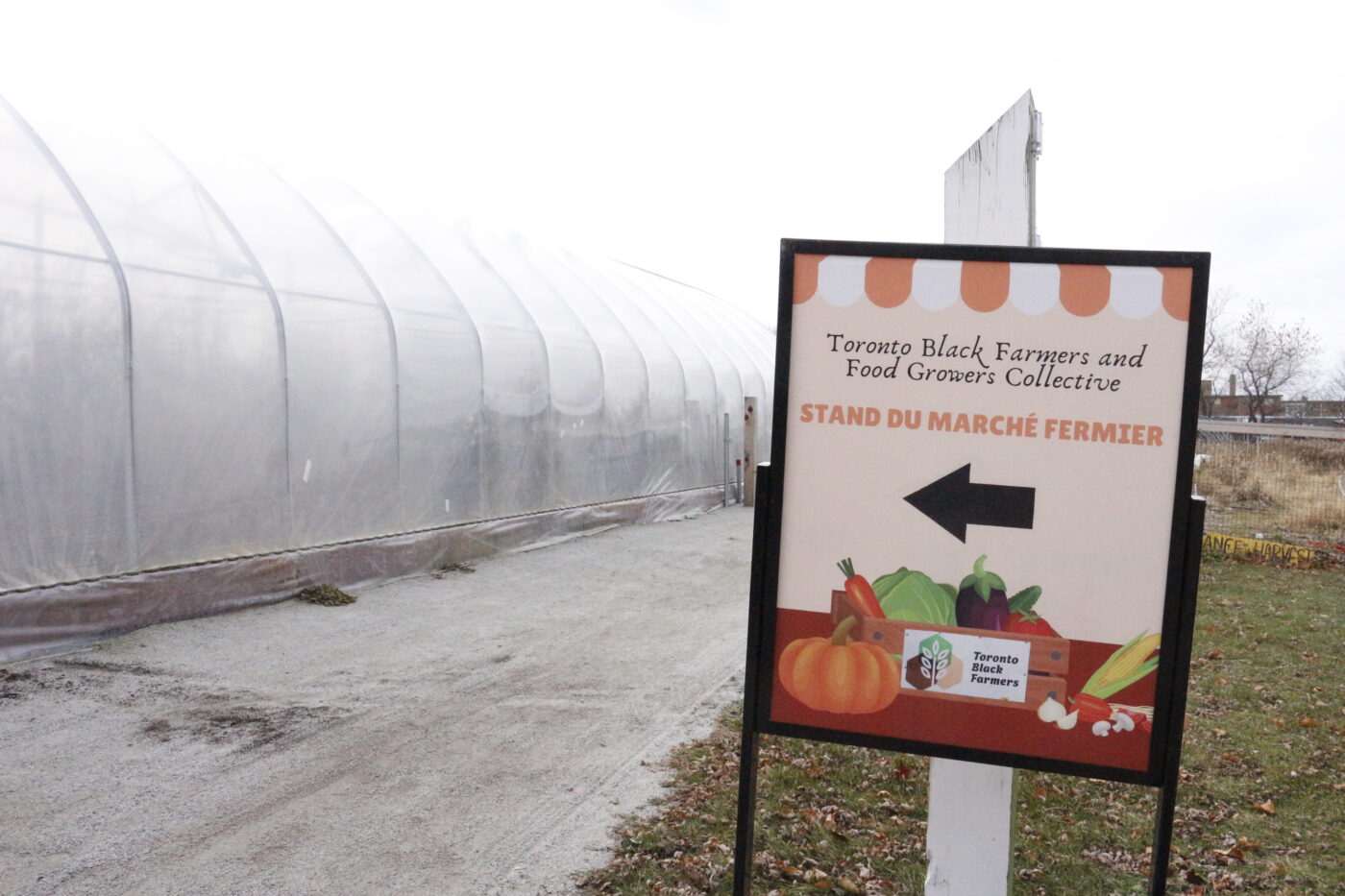
THE TORONTO BLACK FARMERS AND FOOD GROWERS COLLECTIVE'S WELCOME SIGN OUTSIDE OF ITS GREENHOUSE IN DOWNSVIEW.

Over the years, North York has experienced growing food insecurity, and Downsview is no exception.
According to the 2023 Who's Hungry report by the Daily Bread Food Bank and North York Harvest, 23 per cent of food bank users spend all of their income on housing, leaving no room for food and other necessities.
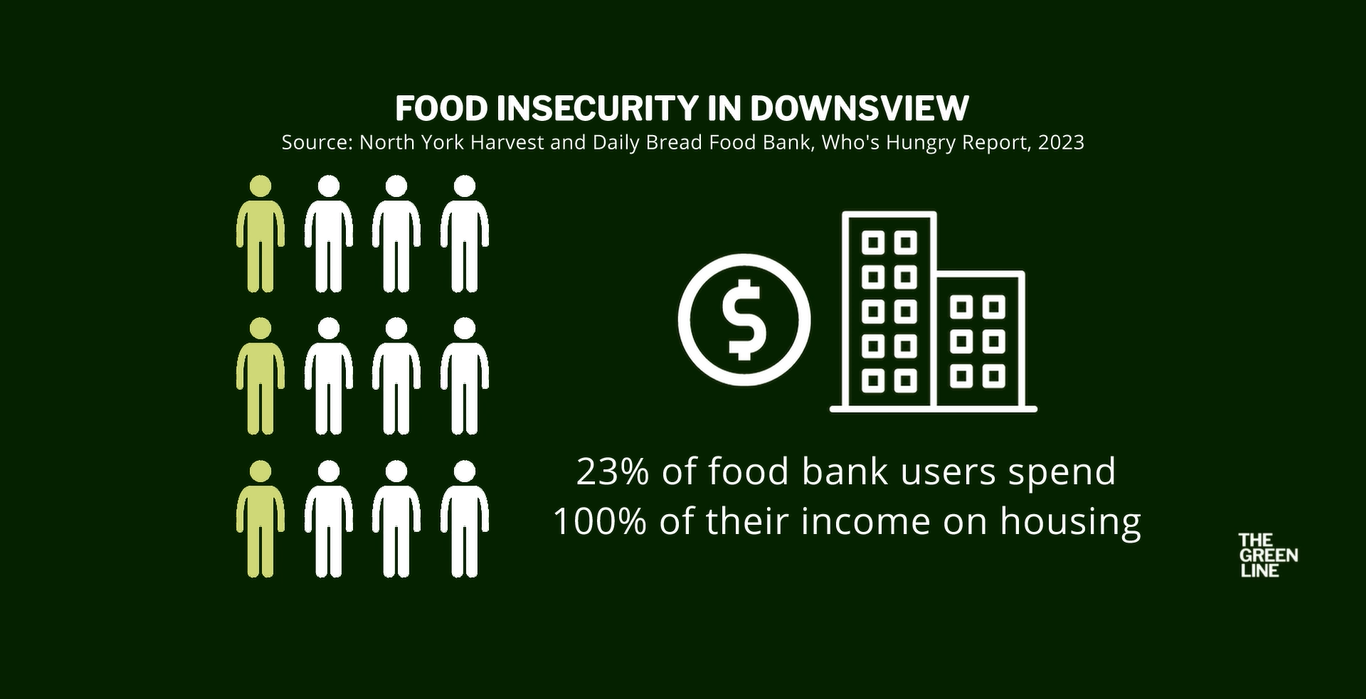
GRAPHIC ON FOOD INSECURITY IN DOWNSVIEW FROM THE 2023 WHO'S HUNGRY REPORT.

Sarah Watson, director of community engagement with the North York Harvest Food Bank, said groups like the Toronto Black Famers and Food Growers Collective are helpful, but can only do so much.
“The Farmers Collective is doing amazing work for their community and for the people that they work with, but they can't on their own change the systemic issues that are keeping many people in their community in poverty and stopping them from being able to access the food that they need, the food that they want, the food that they have a right to," Watson said.
"Canada has signed on to food as a basic human right, but is not putting the things in place to ensure that that happens. And so, it becomes, you know, people in the community take that on to make sure that people have the food that they need and they want for themselves and for their families.”
That's why Dwyer wants to expand her vision. She plans to establish a learning institute to teach others how to be self-reliant through farming. Dwyer said it's important to come back to basics — to the soil.
"A very key factor why I got into this [is] because food is getting very expensive. It's just now people are experiencing it, [but] we've been seeing it 10 years ago. Steady up climb of [food insecurity linked to Torontonians'] class and creed," she explained. "Good food goes into certain neighbourhoods; not everybody has the same food culture in terms of access. And so, good food gets to go where the people with money are."
Fact-Check Yourself
Sources and
further reading
Don't take our word for it —
check our sources for yourself.
